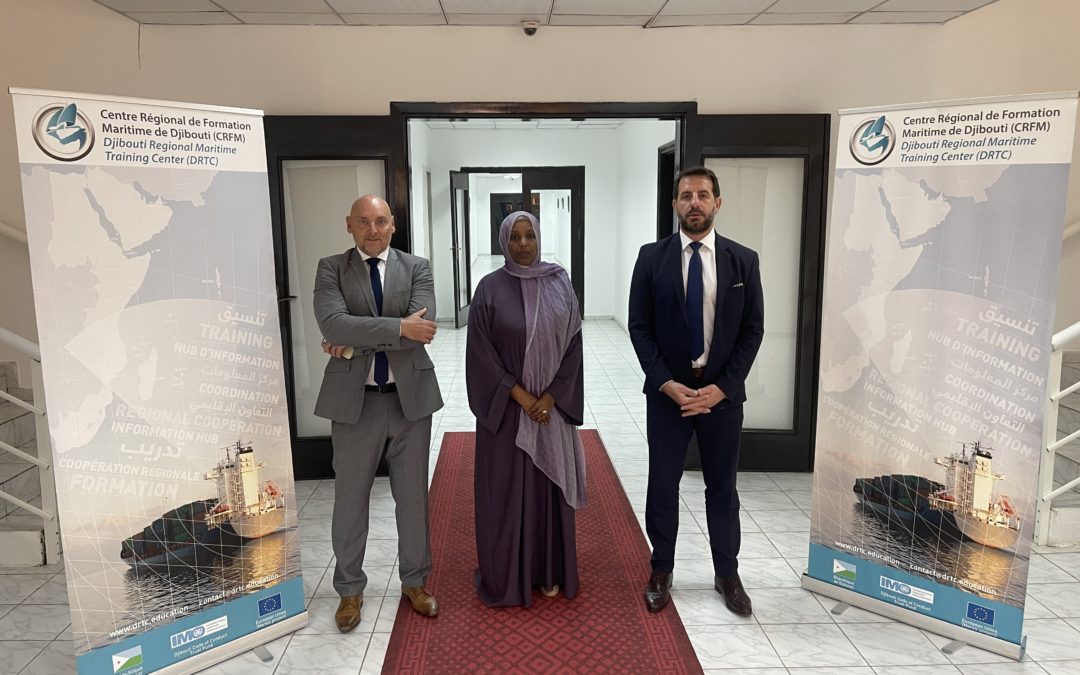Maritime is constantly vulnerable to crisis, being it related to cybersecurity or piracy incidents, accidents (collisions or oil spills) or fatalities. No matter what the challenge is, handle the crisis with a trained and responsive team is essential to limit the damages. Moreover, how you communicate internally and externally can come to define how your organisation is perceived.
Coming out of a crisis well requires serious planning, rehearsals, and support from the very top of the organisation.
These were all the topics discussed during the five-day workshop provided by the project in Djibouti between the 14 and 18 of January, in an international context marked since December 2023 by serious disruptions to maritime traffic on the traffic axis of the Bab Al Mandeb Strait, at the confluence of the Red Sea and the Gulf of Aden.
The seminar, organised in cooperation with by the Regional Maritime Training Center of Djibouti (CRFM/DRTC), brought together national and international experts to discuss best practices in maritime crisis management.
Throughout the seminar, participants had the opportunity to attend presentations and interactive workshops led by international specialists. Topics covered included maritime crisis prevention, emergency management at sea, international coordination and the role of the maritime authorities.
National institutions also shared their own experiences in this area, highlighting measures taken to strengthen maritime security and safety in the country. Case studies were presented, reflecting the specific challenges Djibouti faces due to its strategic geographic position.
The seminar was inaugurated by the Director General of CRFM/DRTC Ms. Mina Houssein, who underlined the importance of strengthening national capacities in maritime crisis management. Ms. Houssein also highlighted the crucial role of Djibouti as a maritime shipping hub in the Horn of Africa region.
Closing the workshop Fabrice Tollari, responsible for the international crisis management training said: “During this week, we were able to identify and train a team ready to respond to any type of crisis that might occur at sea. The team now masters the fundamental principles of crisis management, the specific tools needed to successfully manage an exceptional situation, and the processes involved in making decisions under uncertainty. We carried out a large-scale tabletop crisis exercise, which enabled participants to confirm the need for an organised structure and trained teams to respond to a crisis.
The investment of the participants and the level of preparation of the Republic of Djibouti deserve to be underlined. We need to continue working in this direction, to keep coordinated management at tactical, strategic and political levels.”

